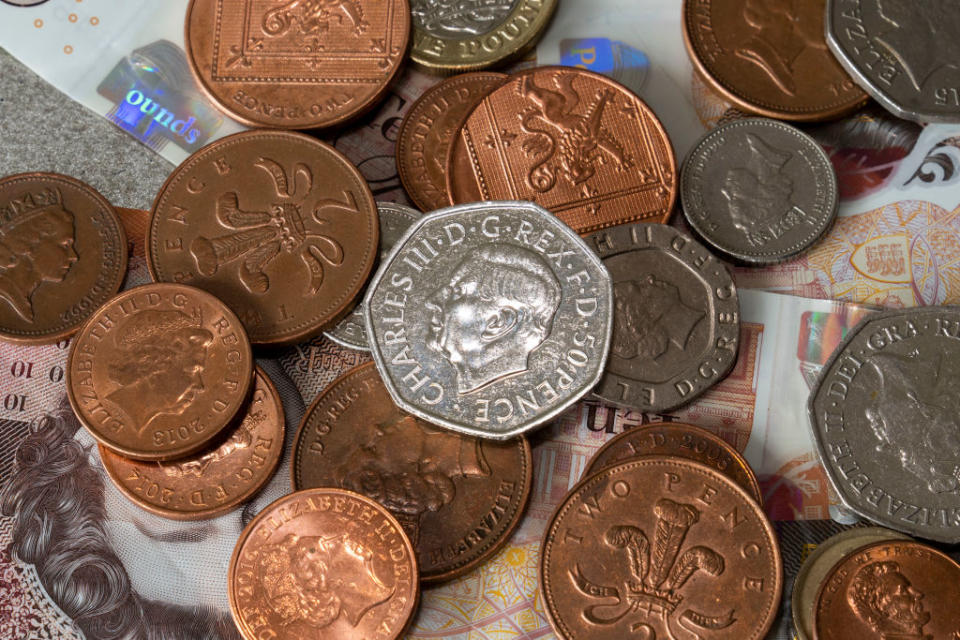Debate: Should we accelerate towards a cash-free society?

After our intrepid deputy comment editor Anna Moloney found herself stranded, £20 note in hand, with no where to use it in Central London, it raised a wider conversation: what’s the point of cash? Does it have nostalgic value? And are we rushing towards a world without pounds and pennies without thinking about it?
Our Debate section took on the thorny question of if we should give up on currency.
Yes: Thankom Arun, a professor at the University of Essex
The global shift toward digital transactions has transformed how people manage their finances and engage in commercial activities for the better. Technological advancements, like mobile banking apps and contactless payments, have made transactions more efficient, reducing the need for cumbersome physical currency and tedious paper records.

During the pandemic, as online banking, e-commerce and digital payments surged due to health concerns.
Transitioning to a cashless society streamlines transactions, enhances financial inclusion, and improves transparency and security. Governments and financial institutions know this: they are currently investing in digital infrastructure and exploring central bank digital currencies to revolutionise the financial landscape further.
Emerging economies, such as India with UPI, Kenya with M-Pesa, and China with Alipay, have embraced cashless solutions to enhance financial inclusion, reduce fraud and stimulate economic growth. These platforms have bridged the gap between the formal financial system and under-served populations, providing fast access for people who might otherwise be cut off.
Overall, a cashless society has the potential to streamline financial transactions, improve financial access, enhance security and contribute to economic development. That said, it is of course essential to address challenges such as digital inclusion and cyber-security so as to ensure that these benefits are accessible to all members of society.
No: Lydia Prieg, head of economics, New Economics Foundation
Many of us could happily go for months without having any cash in our hands. That said, we shouldn’t skim over the negative consequences that would come with a cashless society.
We need to think about who benefits from a society where money is solely electronic and, spoiler, it’s payment companies like Visa and Mastercard. Right now every time a transaction is made digitally, companies like these ones get a small share. Having cash as an option helps keep their powers in check.

If we had no alternative to digital payments there could be a risk these companies raise their transaction fees. This would squeeze the small businesses that play a vital role in our communities.
A completely cashless society also raises concerns around privacy. Digital payments are easier for banks and the government to trace. Even in the last few weeks we’ve heard about new proposals which would give the Department for Work and Pensions powers to review people’s bank accounts. People’s access to cash should be protected to safeguard our right to privacy.
And, finally, we must remember there are people in our society who rely on cash for a number of reasons, whether that’s due to age – consider elderly people who aren’t confident with digital payments – or socio-economic status – many people on lower incomes use cash to help them budget throughout the week. We shouldn’t ignore these people’s need for cash and the security it can provide us all, just for the sake of the convenience of a swipe.
The Verdict: Cash is king – and it’s cool
When was the last time you used cash? It’s unlikely to have been recently, unless you’ve got a drug habit, are otherwise engaged in the shadow economy or got mugged while carrying your Christmas tree home. And as Professor Arun points out: Cash is inconvenient.
So points for convenient, fine. But transparent and secure? Whilst Arun argues yes, as each transaction can be recorded, this really comes down to how much trust you have in your government. An administration with bad intentions could take advantage of this transparency. This is the banner under which most anti-cashless-society activists choose to march under.
But there’s another argument that both our contestants ignored – one that, for us at City A.M., is more powerful than any other: cash is cool. Older people and klutzier people know this; that’s why they continue to use it. You can’t make it rain in Google wallet cards. You can’t give your child a fiver to bribe them to complete their homework with PayPal. Cash has not yet died and that is a cause for celebration. Verdict: rejected.

 Yahoo Finance
Yahoo Finance 